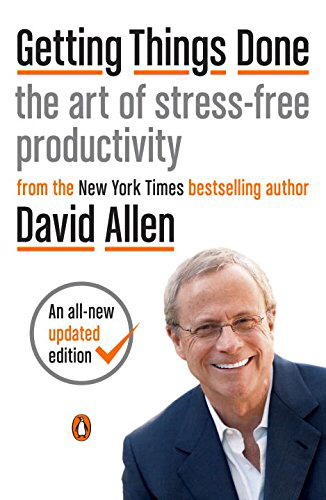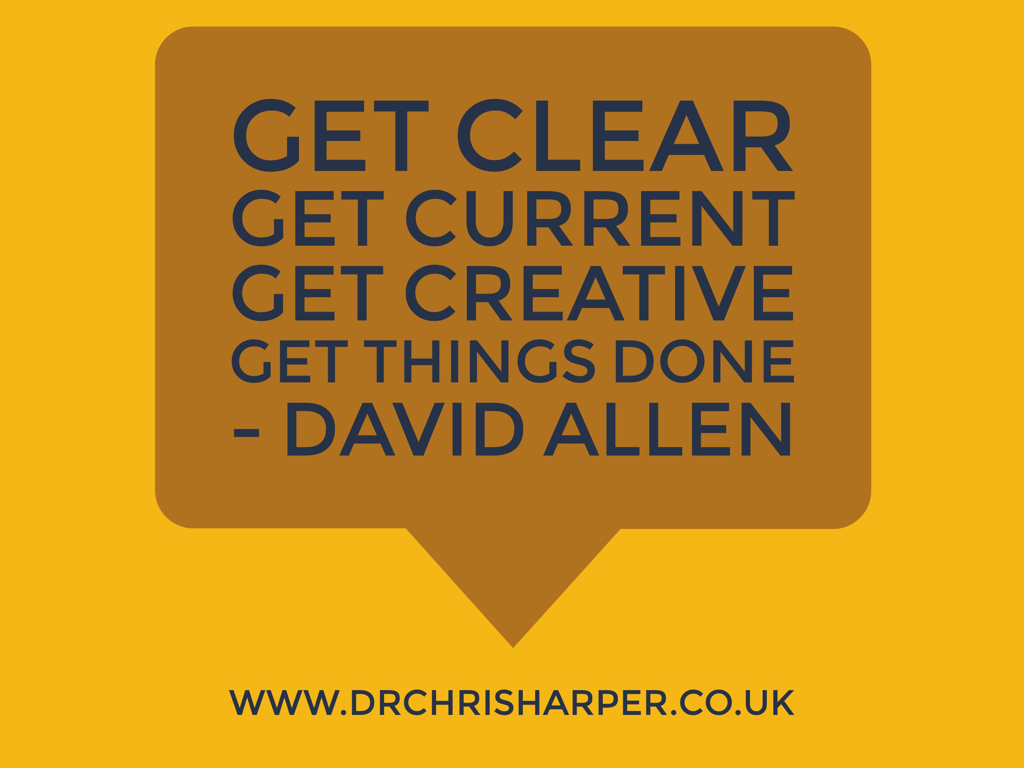|
Getting things done (GTD) by David Allen has been on my list of books to read for some time. Many people have mentioned that I might like it and indeed they were right. There is a striking similarity to Productivity Ninja (http://www.drchrisharper.co.uk/blog/book-review-how-to-be-a-productivity-ninja) which was the book that really catapulted me into this field of improving my organising capabilities. However there is a caveat to this recommendation. It is extremely in depth which probably would be useful for certain types of people such as busy business executives who work out of multiple offices and make dozens of calls and emails every day. But it could be very easy to be overwhelmed by the amount of detail in GTD. I wouldn't at this point recommend everyone read GTD. Instead it is probably most useful to people who have already implemented some kind of task management system such as that explained in productivity ninja. It can then refine the system you have rather than try to build a totally new system from scratch. If I had read GTD as my first book in this field I probably wouldn't have been motivated to put it into action. This is probably the reason why much of David Allen's time is actually spent helping wealthy executives to implement this system on a 1 on 1 basis. If you can afford to pay him, the author will come to both your office and home and help you to organise all your filing and get these systems implemented. The fact that people are prepared to pay thousands of dollars for this service probably highlights that it isn't necessarily the simplest system to introduce yourself. Having said that there definitely have been some useful things I have taken away from GTD that are worth sharing: I used to use just two lists in my google keep. One is the overall list that contains every note I have made, with the second list being those items I have tagged as the ones I want to get done on any given day. This has worked well up until very recently and it is probably the best way to introduce someone to increasing their productivity. However more recently I have found that the sheer volume of things on my overall list has slowed down my planning and as I have started to do more work at home in the mornings and started regularly working in a second site in Exeter it makes sense for me to change to the system recommended in GTD. On the "Today" list is only the times that are essential I do that day. And then I have introduced additional tags for notes that I can quickly associate with the various locations I work in. So for instance I have an @Exeter list which contains items I may want to do while at that site. People I need to talk to about certain items, ideas to research in the down time when students don't need my help, hints/topics to discuss with students if a patient doesn't turn up. I have a similar list for my main place of work. So on any given day I focus on the "Today" items and then once they are done can with one click move to a second list of things to do already focussed on the location I am in. The other thing that is worth highlighting that GTD focussed on is the idea of clarifying the next action to be taken on any specific project. If your "to do" list just says "Camera" that doesn't actually remind you what you need to do. So when you see the reminder your brain has to do a fraction more work focussing on the task and often that results in a little block discouraging you from actually doing it. Instead you to do list should say "Research internet for camera". And the final thing GTD has given me is a nice quote explaining how this kind of system helps you to feel less stressed. It is fairly easy to see how this system helps you to achieve more but people are often surprised to hear that I am both doing more but also feeling far less stressed than I was a year ago. "As soon as you tell yourself you should do something, if you file it only in your short term memory, the part of your brain that handles tasks thinks that you should be doing it all the time! And that means that as soon as you've given yourself 2 things to do and file them only in your head, you've given yourself instant and automatic stress and failure because you can't do them both at once." If you want to feel free from this stress and want to increase your productivity then definitely look into this field. Maybe start with productivity ninja first and build up to GTD. Or if you are anywhere near Exeter on Wednesday 11th October you would be more than welcome to join us at the Pinhoe dental centre for a free study club where I will be talking more about exactly this topic. See the teaching calendar section of my website for more details. If you you think GTD would suit you have a look here: https://amzn.to/2HJfLJv
0 Comments
Leave a Reply. |
AuthorDr Chris Harper Archives
August 2020
Categories
All
|




 RSS Feed
RSS Feed
